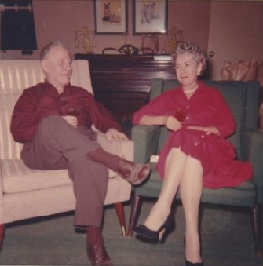A reverse mortgage is a unique loan only for senior citizens age 62 or older. Instead of receiving a bank loan to purchase something, with a reverse mortgage, the bank pays the homeowner and when they pass away, the bank takes possession of your former home and sells it to pay off the loan. Although these are complicated contracts, and each bank does it differently, the basics of the reverse mortgage closing are:
- You have effectively sold your home to the bank, although you keep the right of possession.
- You are either paid monthly or receive a line of credit that you can draw down.
- It is a loan. And as in every loan, interest is earned by the party that gets richer (the bank) and interest is paid by the party that gets poorer (you).
- To be clear, this loan allows you to spend the equity that you’ve built up in your home.
Is there ever a scenario where a reverse mortgage makes sense? Yes, but they are very rare. First, let’s examine the general living path of people aged 70-85 years old.
- On a limited income, many people can no longer afford normal and expected home maintenance: new roof, painting inside and outside, new flooring, replacing windows, and remodeling.
- By their mid-70s, many people are physically unable to maintain a home. Yard work and house work may have to be performed by family members, or they need the financial means and ability to purchase and manage support services.
- By their early 80s, many people are grateful to move into an independent-living or assisted-living facility where housing duties are taken care of by someone else, even cooking if you want. As people face additional medical challenges, they move up into higher levels of care facilities.
Not everyone, but most people fall along these life-path scenarios. A reverse mortgage would be highly inappropriate for anyone along this normal course. What about those few who have the physical and mental capability to live on their own, in their home, until the end? Since a reverse mortgage is a loan, is this loan a good fit for their cash flow needs? Has their lifetime been financially mapped out with retirement account withdrawals? Perhaps a home-equity loan is better; it will certainly have a lower rate and fees than any reverse mortgage. Perhaps downsizing to a smaller home will free up your current home equity so maybe no loan is needed at all.
A Metlife study found that 2/3rds of people seeking reverse mortgages are trying to shore up their precarious financial situation. A director at US Mortgage says the majority of their reverse mortgage clients are trying to dig their way out of substantial debt. 10% of reverse mortgage recipients are at risk of default and being kicked out of their home because they failed to pay home insurance or property taxes. To me, these people have been making poor financial decisions and are continuing that with yet another poor financial decision. The statistics bear this out – many spend all of the reverse mortgage money within a few years and are financially worse off than before they took out the reverse mortgage.
To arrive at any financial conclusion for your particular circumstances, a thorough financial review of all of your assets and income must be performed. Since no one can predict how life will play out, financially map out several likely scenarios. Maybe a reverse mortgage may fit into your financial plan, but in my opinion, that is unlikely to be your best solution as a source of funds.

